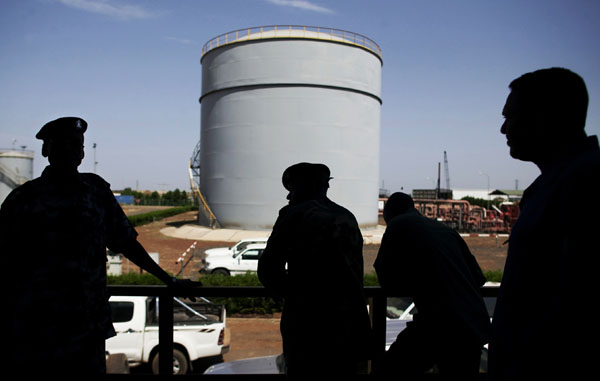
Sudan has begun to block the oil exports of newly independent South Sudan in a move aimed at changing negotiating dynamics to its favor. The decision has prevented a total of 1.6 million barrels of oil from being exported to two buyers and comes as talks in Addis Ababa between the two countries’ ruling party representatives are taking place. A key focus of the talks is to settle on the transit fee that South Sudan will pay to Sudan for the use of oil infrastructure located in the North.
On Monday, Khartoum’s oil minister announced the blockade of South Sudan’s oil exports, providing as rationale the fact that South Sudan has yet to pay any fees since its independence in July. The total amount owed to Khartoum is $727 million, the oil minister said to the media. Multiple news reports cited the number, but it is unclear how it was calculated.
Sudan’s minister also specified to the media that only South Sudan exports—not those belonging to international companies operating in the South—would be blocked.
In turn, the southern oil minister has called Khartoum’s blockade an “intimidation tactic” and has said that his country would continue to pursue an alternative pipeline.
Speaking to Enough today, Deputy Petroleum Minister Elizabeth Bol said that Khartoum’s goal is to increase pressure on South Sudan. “It is not correct,” she said, for Khartoum to unilaterally block the South’s exports when “we should sit at the negotiation table and work it out.” Bol said the focus should be on respecting the international mediation that is already in place.
The deputy minister said that channels have not been opened with Khartoum to specifically discuss the blockade, but that the South Sudan government was waiting for talks in Addis to conclude.
Khartoum’s blockade is an attempt to create added urgency for the South Sudan to strike a deal. With oil revenues continuing to flow since independence, South Sudan has had little incentive to come to an agreement on transit fees with the North.
But whether this tactic will actually alter the negotiating dynamic depends on how long a blockade can be sustained. By specifically targeting only South Sudan exports, Khartoum is attempting to stave off the international pressures—especially Chinese—that would undoubtedly arise should it have completely cut off oil flows. Of course, Chinese companies are not only key partners in the Sudan-South Sudan oil extraction and production industry, but also major buyers of the oil. Already, the Chinese government has issued a statement calling for “normal production” of oil and continued cooperation between Sudan and South Sudan:
We are confident that the two governments will abide by their promises, ensure the stability and continuity of oil cooperation, and protect the lawful rights of Chinese businesses and the safety of their personnel.
Photo: South Sudan security guards at the Paloich oil facility (AP)

